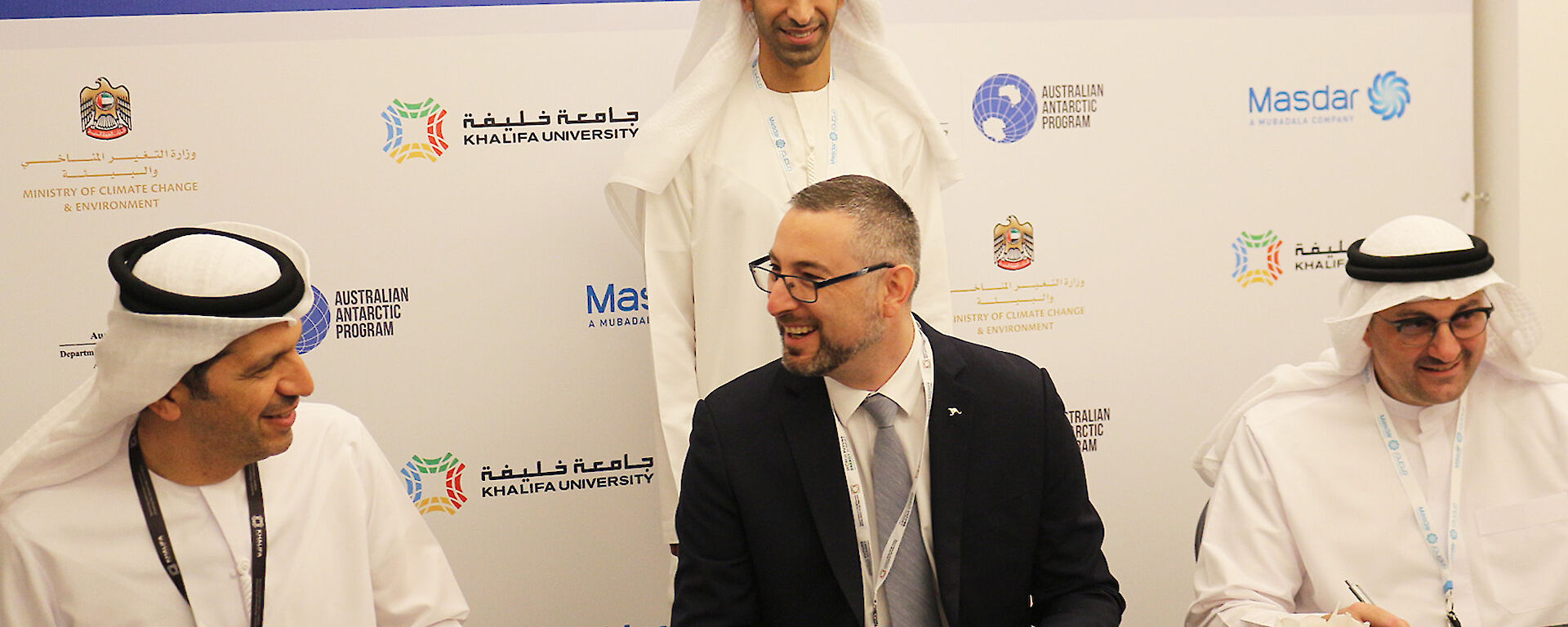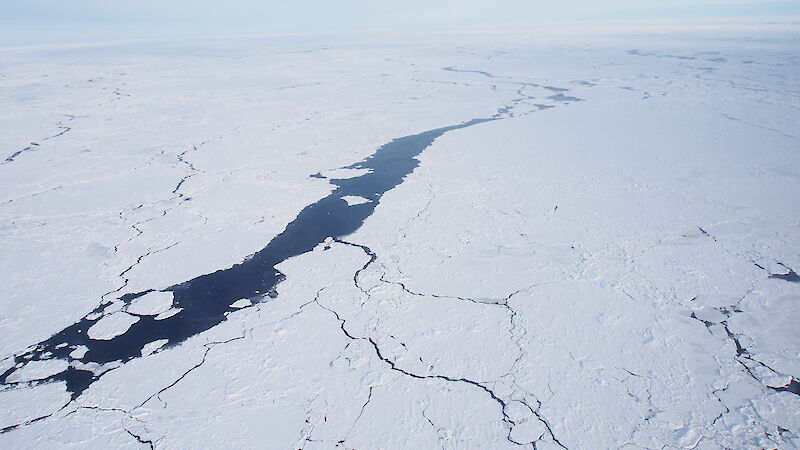A new collaboration will bring expertise and technology from the hot deserts of the United Arab Emirates to the cold deserts of Antarctica.
The Director of the Australian Antarctic Division Dr Nick Gales has announced a collaboration with Masdar — a Future Energy Company based in Abu Dhabi — and the Masdar Institute, part of the Khalifa University of Science and Technology. The collaboration will involve sea ice research and investigating more efficient use of energy on Australia’s Antarctic research stations.
The collaboration has been formally agreed through the signing of a Letter of Intent by Chief Executive Officer of Masdar Mohamed Jameel Al Ramahi; Australia’s Ambassador to the United Arab Emirates, Mr Arthur Spyrou on behalf of the Australian Antarctic Division, and Dr Arif Sultan Al Hammadi, Interim Executive Vice President, Khalifa University of Science and Technology.
Dr Gales said the sea ice research project would be led by Dr Marouane Temimi of the Masdar Institute, a world renowned expert in the development of information on weather and water processes through the use of remote sensing and geographic information systems (GIS). Dr Temimi will be joined in the collaboration with leading sea ice researchers from the Australian Antarctic Division and the ACE CRC.
“The sea ice research project aims to combine the latest advances in remote sensing, data assimilation and forecasting to better understand the effects of climate change on the characteristics and behaviour of Antarctic sea ice,” Dr Gales said. “In particular, we are hopeful that this work will be an important step towards an improved ability to forecast future sea ice coverage from a scientific, operational and shipping perspective”.
The second major area of collaboration with the Australian Antarctic Division will look at energy efficiency and the potential use of renewable energy on Australia’s Antarctic research stations.
“Australia’s research stations except for Mawson, where wind turbines can supply up to 95% of the station’s power requirements in times of high winds, are currently heavily dependent on diesel fuel
Masdar personnel will travel to Antarctica in February to begin the energy efficiency project.



